☀Welcome!☀
✦Good morning, afternoon or evening, whatever time you see this… The gaming industry is a changing industry, at its core it has never stood still at one stage and has been constantly evolving until reaching the point where is now with great jewels that come out every year, Elden Ring, God of war ragnarok and the next releases to come, for example RE:4.
✦Unfortunately, as time goes by, these games, being more ambitious, become more difficult to make and it is more difficult to monetize them, so much so that even many of those we know today have resorted to not very ethical ways of monetizing their video games.
✦I have already talked a bit about the subject in my previous analysis, but I consider that I only touched the tip of the iceberg, in this case I would like to delve deeper into the subject of these forms of monetization that abuse us, players, from those who already invested time in games to those casual and vulnerable players aswell.
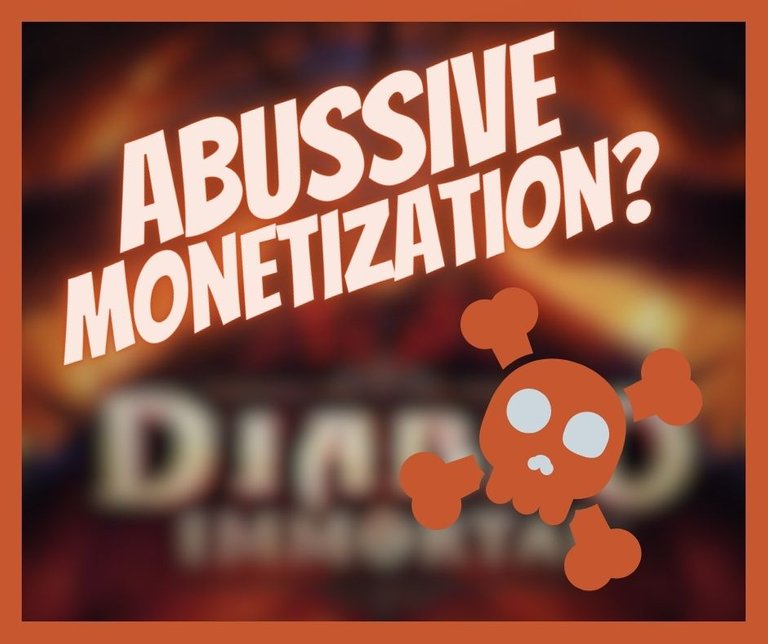
☀Origins☀
✦Before going into these trends in depth, let's analyze a bit the trajectory of "Monetization" in games... Going back to the time of the Arcades, the transaction was very simple, you paid a small amount to play until you lost, if you lost you paid again, The time you decided to play depended entirely on whether you were good enough to keep going (For example in Street Fighter games where if you lost the fight you had to pay again or give up the position to another guy, but if you won... Well no.) It was something simple, you knew what you gave and you knew what you would receive.

✦Now, we go the birth of physical games (cartridges and discs) and consoles. Now, the games were sold out, more expensive, but you didn't have to pay to continue playing and you enjoyed a greater and more developed experience, so it was still simple, you knew what you were giving and received a gaming experience in return.

✦A little later in time we found ourselves in the era in which developers could add content to their games, as a result of this expansions were born, large amounts of content, often paid for, that gave hours of content to a game and added much to the experience already offered initially.
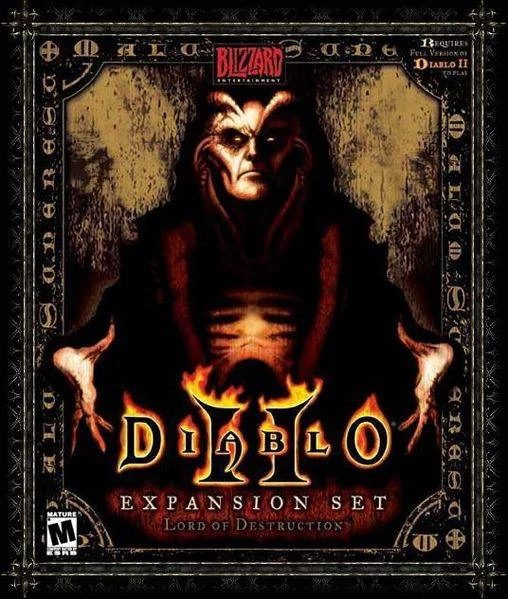
✦Despite this, the pattern was maintained, you gave money, you received a game, you want to expand the game experience with optional new content but just as fun? You paid an amount and received the expansion, which gave you access to more fun. Of course, these payments would be the precursor of something much bigger.
☀The birth of micro-transactions☀
✦That's right... And it all started... With a horse... As absurd as it sounds, at least one of the cases to which the focus of blame points when talking about micro-transactions is the infamous horse armor In The elder scrolls : Morrowind, which was $2.50, this, although not the only example, was probably what made the tendency to put small content, easy to do for a low price but that could be sold many times…grow
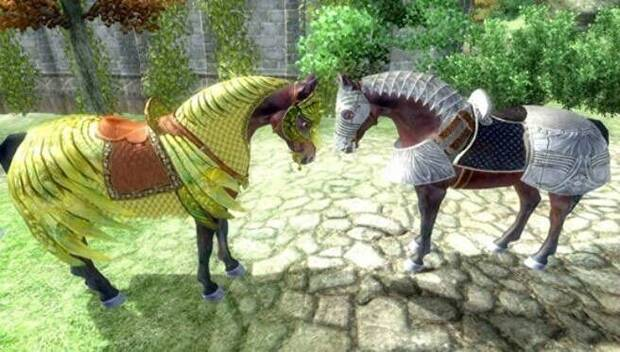
✦Although the players were still skeptical about this, the companies realized that looking good was relevant for the players, before it was unthinkable that you would buy something as secondary as armor for a horse which... It did nothing beyond the aesthetic , today? It has become way more common.
✦And it is that these first signs of micro-transactions were what led the industry to continue growing in these forms of monetization that, although they were advantageous for the company... Fast production, low production cost and unlimited items, were not so beneficial to the player and that it made a game no longer feel complete, but rather, that the things that a game could normally offer were behind a pay wall, or we also find the eternal cosmetics and the games with more payment cosmetics in the form of dlc than game content (Yes, I'm looking at you, generic battle royale number 2913729837º).

☀The schemes.☀
✦Currently it is almost impossible to find a game that does not have some type of micro transaction. These cases were worse in previous years and although less relevance has currently been given to these unethical schemes, let's see some of these schemes that not only take advantage of from you as a player, but also from those most vulnerable players.
●Mobile games
✦Surprise? None, Almost all mobile games took advantage of the casual game model that became popular thanks to Facebook from 2006, all these "Free" games hide a gameplay that limits the progression of those who play for time and of course that gives you the option of pay to speed up this time, Packs that exceed hundreds of dollars, offers everywhere.

✦Torulf Jernström, CEO of Tribleflame, gave a conference known as "Let's go whaling" which aimed to give advice on how to monetize free-to-play mobile games, the conference in addition to exposing a wide variety of unethical strategies can be informative for that you, do not fall into these types of schemes.
✦In any case, a 3-step scheme is normally used to start dominating yourself:
1-. First, they break the ice with an offer so tempting and low in price that it breaks through that pre-conceived wall of “I would never spend money on an online game” that serves as a “Hook”
2-.Then, they create a game habit, making you return to the game in some way (Usually with timed actions that take days to complete) and thus there is a greater probability that you continue spending since “Hey, I am investing time in this I play and I already spent before, what could happen ”.
3-.Finally they make this game become a hobby, something that you have put time and resources into and therefore you feel emotionally connected to it...Like the IKEA effect, which comes from emotional attachment to the things you build for yourself. yourself, which leads you to spend money and time to continue investing in it.
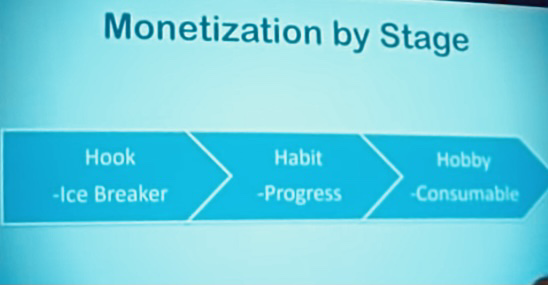
●Addict Hunters
✦ Addiction is defined as the brain's need to seek reward or relief in a pathological way through the consumption of certain substances and above all Behaviors. Which means that they are not limited to substances but behaviors as well, Sex addiction, eating addiction and most importantly, spend addiction and everything that has to do with spending money.

✦Obviously, they benefit from this, which ends up in the so-called "Whales" (Gamers who spend A LOT of MONEY) They are not always children or rich adults with too much money, but also addicts to spend who end up spending more money than ever They might have done it to begin with, so they take advantage of stores with limited-time offers, exclusive items that won't appear again, and the like.

●Lootboxes
✦Ah yes, The infamous lootboxes… It is said that one of its most significant early appearances was in Maple story a Japanese online game that became tremendously popular for its in-game gacha mechanic, from there… Things got worse, like a ball of snow that was getting bigger and this was tremendously evident in recent years…in the decade of 2010-2020.
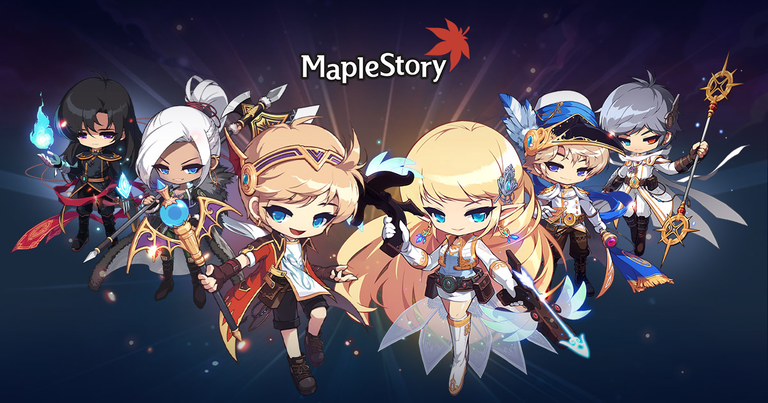
✦These little random loot boxes that basically serve as an in-game gambling mechanic peaked around 2017-2018, where every game you could come across had a similar system…CoD World War, Heroes Of The Storm, Overwatch, Literally Any EA game at that time and they were so abusive to the player that they even became illegal.

✦Did you know that FIFA: Ultimate Team made 1.63 BILLION dollars in 2021? That's more than all the fifa games (Nothing else the base games) TOGETHER And of course let's not forget Star Wars: Battlefront II which had a lot of problems due to this system, why, it's not that it was just cosmetic but also, the progression of the game was based on what you got in these lootboxes, obviously, as well as being unethical, nobody liked this.
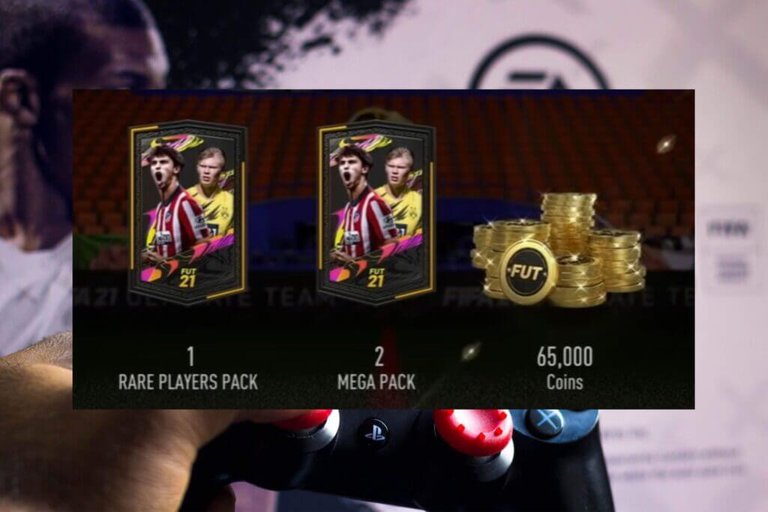
✦Lootboxes, although by themselves, are not capable of creating gambling addicts if they attract those who already are, since the psychology behind them is quite similar and the amount of money that can be spent is also quite high. Again taking advantage of addicts with mechanics that are very similar to normal bets and therefore spend money.
☀Conclusion☀
✦There are also pay-to-win, pay-to-progress schemes that are also harmful, but I wanted to expose here some of the most notable and of course other immoral things in the industry.
✦It is incredible that this type of behavior goes unnoticed and that it even becomes more evident over time, at least it is nice to see that little by little the industry has been separating itself from this type of scheme and is looking for healthier ways that, above all, , also benefit the player.
✦And then… What are your opinions? I would like to know what they say… in any case, this has been all and thank you very much for reading! Although this post is the first so long that I do of this type (Sorry about that).
All the images except the marked ones (Source) Were make or taken by me
Follow me on Twitter
Huge inspiration from jim sterling: "The Addictive Cost Of Predatory Videogame Monetization (The Jimquisition)" video
And John Strife Hayes: "What went wrong withgaming?" Video.
☀VERSION EN ESPAÑOL☀
☀Bienvenidos!☀
✦-Buenos días, tardes o noches, cual sea la hora a la que veas esto…La industria de los videojuegos es una industria cambiante, en su núcleo nunca se ha mantenido quieta en una etapa y ha estado evolucionando constantemente hasta llegar al punto en el que está ahora con grandes joyas que salen cada año, Elden Ring, God of war ragnarok y los próximos lanzamientos que están por venir, por ejemplo RE:4.
✦Lamentablemente, conforme pasa el tiempo estos juegos al ser más ambiciosos se hacen más difícil de hacer y es más difícil monetizarlos, tanto, que incluso muchos de los que conocemos en la actualidad han recurrido a formas no muy éticas de monetizar sus videojuegos.
✦Ya he hablado un poco del tema en mi análisis anterior, pero considero que solo toqué la punta del iceberg y en este caso quisiera profundizar más en el tema de estas formas de monetización que abusan de nosotros jugadores, tanto como los que ya llevamos tiempo invirtiéndole tiempo a los juegos como los más casuales y posiblemente vulnerables…Acompáñame a ver estos esquemas de monetización de dudosa moralidad!

☀Orígenes☀
✦Antes de entrar a fondo a estas tendencias analicemos un poco la trayectoria de la “Monetización” en juegos…Remontando al tiempo de los Arcades la transacción era muy sencilla, Pagabas una pequeña cantidad para jugar hasta que perdías, si perdías pagabas de nuevo, El tiempo que decidías jugar dependía enteramente de si eras lo bastante bueno como para seguir en pie (Por ejemplo en los de Street fighter donde si perdías la pelea debías volver a pagar o cederle el puesto a otro, pero si ganabas…Pues no.) Era algo sencillo, sabías lo que dabas y sabías lo que recibirías.

✦Nos adelantamos en el tiempo, el nacimiento de los juegos físicos (cartuchos y discos) y las consolas. Ahora, los juegos eran vendidos de manera completa, más caros, pero no debías pagar para seguir jugando y disfrutabas una experiencia mayor y más desarrollada, por lo que seguía siendo sencillo, sabías lo que dabas y recibías a cambio una experiencia de juego.

✦Un poco más adelante en el tiempo nos encontramos con lo que fue un tiempo donde los desarrolladores podían meterle contenido a sus juegos y dió lugar a las expansiones, grandes adiciones de contenido que mejoraban la experiencia de juego significativamente.

✦A pesar de esto el patrón se mantenía, dabas dinero, recibías un juego, que querías expandir la experiencia del juego con contenido nuevo opcional pero igual de divertido? Pagabas una cantidad y recibías la expansión, lo que te daba acceso a más diversión, Claro que estos pagos serían el precursor de algo mucho más grande.
☀El nacimiento de las micro-transacciones☀
✦Así es…Y todo inició…Con un caballo…Por más absurdo que suene, al menos uno de los casos a los que el foco de la culpa apunta cuando se habla de micro-transacciones es de la infame armadura de caballo En The elder scrolls: Morrowind, que costaba 2,50$, esto, si bien, no el único ejemplo, fue probablemente lo que hizo que la tendencia a colocar contenido pequeño, fácil de hacer a un bajo precio pero que se pudiera vender muchísimas veces…Creciera…

✦Si bien, todavía los jugadores estaban escépticos por esto, eso no evitó que siguiera creciendo, antes era impensable que comprases algo tan secundario como una armadura para un caballo el cual…No hacía nada, hoy? Se ha vuelto demasiado común para contarlo de manera normal.
✦Y es que estos primeros indicios de micro-transacciones fue lo que llevó a la industria a seguir creciendo en estas formas de monetización que aunque fuesen ventajosas para la empresa…Rápida producción, bajo coste de producción y artículos ilimitados, no eran tan beneficiosas al jugador y que hacía que un juego ya no se sintiese completo, sino, que las cosas que un juego normalmente podía ofrecer estaban detrás de una pared de pago, o también encontramos los eternos cosméticos y los juegos con más cosméticos de pago en forma de dlc que contenido de juego (Si, te estoy viendo a ti, battle royale genérico número 2913729837º).

☀Los esquemas.☀
✦Actualmente es casi imposible encontrar algún juego que no tenga algún tipo de micro transacción, Estos casos eran peores en años anteriores y aunque actualmente se ha estado dando menos relevancia a estos esquemas poco éticos, pasemos a ver algunos de estos esquemas que no solo se aprovechan de ti como jugador, sino también de aquellos más vulnerables.
●Juegos móviles
✦Sorpresa? Ninguna, Casi todo juego móvil se aprovechó del modelo de juego casual que se popularizó gracias a facebook a partir del 2006, todos estos juegos “Gratis” esconden una jugabilidad que limita la progresión de quien juega por tiempo y claro que te da la opción de pagar para acelerar este tiempo, Packs que superan los cientos de dólares, ofertas por todos lados.

✦Torulf Jernström, CEO de Tribleflame, dió una conferencia conocida como “Let’s go whaling” La cual apuntaba a dar consejos sobre cómo monetizar juegos móviles free-to-play, La conferencia además de exponer una gran variedad de estrategias poco ética puede ser informativa para que tú, no caigas en este tipo de esquemas.
✦En cualquier caso, Normalmente se usa un esquema de 3 pasos para empezar a dominarte:
1-. primero, rompen el hielo con una oferta tan tentadora y de bajo precio que rompa esa pared pre-concebida de “Yo nunca gastaría dinero en un juego online” que sirve como un “Gancho”
2-.Luego, Crean un hábito de juego, haciendo que de alguna forma vuelvas al juego(Normalmente con acciones temporizadas que tardan días en completarse) y así haya más probabilidad de que sigas gastando ya que “Hey, le estoy inviertiendo tiempo a este juego y además ya gasté antes, que podría pasar”.
3-.Finalmente hacen que este juego se convierta en un hobby, algo que le has metido tiempo y recursos y por tanto te sientas emocionalmente conectado a él...Como el efecto IKEA, que proviene del apego emocional a las cosas que construyes por ti mismo, lo que te lleva a gastar dinero y tiempo en seguir invirtiendo en él.

●Cazadores de adictos.
✦ La adicción es definida como la necesidad del cerebro de buscar una recompensa o alivio de manera patológica a través del consumo de ciertas sustancias o Conductas. Lo que quiere decir que no están limitados a sustancias sino conductas también, Adicción al sexo, adicción a comer y más importante, Adicción al malgasto y todo lo que tenga que ver con gastar dinero.

✦Obviamente, ellos se benefician de esto lo que termina en que las llamadas “Ballenas” (Jugadores que gastan MUCHO DINERO)No sean siempre niños o adultos ricos con demasiado dinero, sino, también, adictos al derroche que terminan gastando más dinero del que alguna vez lo hubiesen hecho para empezar, por eso, se aprovechan con tiendas con ofertas de tiempo limitado, items exclusivos que no aparecerán de nuevo y cosas del estilo.

●Lootboxes
✦Ah si, Las infames lootboxes…Se dice que una de sus primeras apariciones más significativas fue en Maple story un juego online japonés que se hizo tremendamente popular por su mecánica gacha in-game, desde ahí…Las cosas fueron a peor, como una bola de nieve que se hacía más grande y esto se evidenció tremendamente en años recientes…en la década del 2010-2020.

✦Estas pequeñas cajas de recompensas aleatorias que sirven básicamente como una mecánica de apuestas en el juego tuvieron un pico cerca de 2017-2018, donde cada juego que podrías encontrarte tenía un sistema parecido…CoD World War, Heroes Of The Storm, Overwatch, Literalmente cualquier juego de EA por esos tiempos y eran tan abusivas con el jugador que incluso se volvieron ilegales.

✦Sabían que FIFA: Ultimate Team hizo en 2021, 1.63 BILLONES de dólares?Eso es más que todos los juegos de fifa (Nada más los juegos base) JUNTOS Y claro no olvidemos el Star Wars: Battlefront II el cual tuvo muchísisimos problemas debido a este sistema, por qué, ya no es que era solo cosmético sino que también, la progresión del juego se basaba en lo que obtenías en estas lootboxes, obviamente, siendo además de poco ético esto no le gustó a nadie.

✦Las lootboxes aunque por si solas no son capaces de crear adictos a las apuestas si atrae a quienes ya lo son, ya que la psicología detrás de estas es bastante parecida y la cantidad de dinero que se puede gastar es bastante alta también. Denuevo aprovechándose de los adictos con mecánicas que son muy muy parecidas a apuestas normales y por ende, gastan dinero.
☀Conclusión☀
✦Existen también los esquemas pay-to-win, pay-to-progress que también son dañinos, pero quise exponer aqui algunos de los más destacables y por supuesto otras cosas poco morales en la industria.
✦Es increíble que este tipo de conductas pasen desapercibidas y que incluso se hagan más evidentes con el tiempo, al menos es lindo ver que poco a poco la industria se ha estado separando de este tipo de esquemas y buscan formas más sanas y que por sobre todo, también benefician al jugador.
✦Y entonces…Cuales son sus opiniones? quisiera saber que dicen… en cualquier caso, esto ha sido todo y muchas gracias por leer! Este post aunque es el primero tan largo que hago de este tipo (Perdón por eso).
All the images except the marked ones (Source) Were make or taken by me
Follow me on Twitter
Huge inspiration from jim sterling: "The Addictive Cost Of Predatory Videogame Monetization (The Jimquisition)" video
And John Strife Hayes: "What went wrong withgaming?" Video.
Microtransactions in games are getting more and more uncontrollable. Fifa is one of the most important examples of this, but Valorant should not be overlooked. The money for just one weapon skin is unbelievable.
Well, yeah, at least in valorant are just cosmetic,in fifa ultimate team literally the better the players you get then stronger your team is...And how you get rare players? well...I think you can see where it goes.
Es un tema muy interesante, creo que para combatir esto sería muy pero muy difícil en esta época es extraño que aún suela suceder. Algo que odio son los pay-to-win, las personas que no pueden comprar nada simplemente no podrán ganar, lo mismo ocurre con algunos juegos que compras y al final debes seguir gastando dinero para disfrutarlos, wtf?
Otro caso que odio es en la Play Store, existen juegos que literalmente cada 1min te sale un anuncio, DIOSSSSSSS que estres XD
JSAJAJJAKASAS si, como dije, hay zonas del mercado que estaban o están podridas, al menos ahora se van vuelto mejores en ese sentido, curioso que EA sigue siendo EA
Congratulations @sunny-chuni! You have completed the following achievement on the Hive blockchain And have been rewarded with New badge(s)
Your next target is to reach 200 comments.
You can view your badges on your board and compare yourself to others in the Ranking
If you no longer want to receive notifications, reply to this comment with the word
STOPTo support your work, I also upvoted your post!
Check out our last posts:
Support the HiveBuzz project. Vote for our proposal!
no sé yo me compré el pase de batalla de brawlhalla y luego me robaron toda la plata de la cuenta
JAJAJAJAJJAJSAJSA, épico.
Hablando de la actualidad con gacha y lootbox yo sinceramente no creo que sea abusivo cada quien decide si pagar o no, lo que si lo veo es incorrecto o que necesita de regularse porque utilizan tácticas que exprime a los mas vulnerables.
Es cierto, como mencioné, la cultura va cambiando y todo el tema de las lootboxes y gachas ha ido disminuyendo en popularidad en algunos casos (Otros como genshin aún se han mantenido pero bueno) creo que me gusta más enfocar estos abusos generales...Por ejemplo Diablo inmortal que es un horror en cuanto a estos esquemas.
Creo que definitivamente la monetización más descarada de todas es la de los juegos móviles, nisiquiera EA con sus loot boxes llega a ese nivel de descaro, además añádele toda la publicidad engañosa que tienen estos juegos.